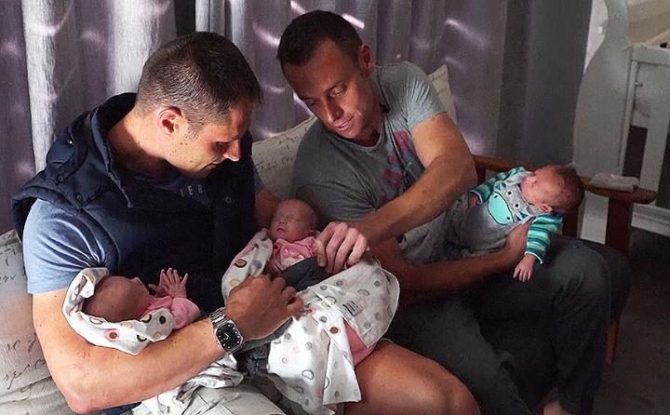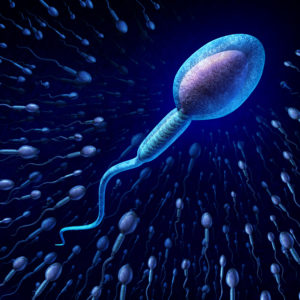
Triplets With DNA From Both Same-Sex Parents Born In South Africa
I can only imagine how it feels to become a parent for the first time. The words thrilling, exciting, nerve-racking, and love, all immediately come to mind.
I’m sure that’s close to what South African dads Christo and Theo Menelaou felt – perhaps multiplied three times over – when they brought home their adorable triplet babies for the first time. Of course, triplets and newborns alone are enough to prompt a flurry of excitement. But there’s another reason Christo and Theo had to be especially excited: the couple’s triplets carried DNA from both of their same-sex parents — the first ever multiples with DNA from three parents. 
Of course, the couple went through a long journey to become parents. In an interview with Sky News, Christo Menlaou shared some of the couple’s previous experiences in pursuing adoption:
The babies were delivered, prematurely, in July. And the adorable triplets are now home with their dads, after weeks of being monitored in the hospital, Sky News reported. The babies reportedly needed breathing assistance, and are still receiving care from nurses at home.
The gynecologist who delivered the triplets said the babies, born by surrogate with a split embryo resulting in triplets, was an “extremely rare” situation. “It is extremely rare,” Dr Heidra Dahms told Sky News. “I have never heard of this before.”
by Kimberly Richards, Romper.com – August 22, 2016
Click here to read the entire article.
